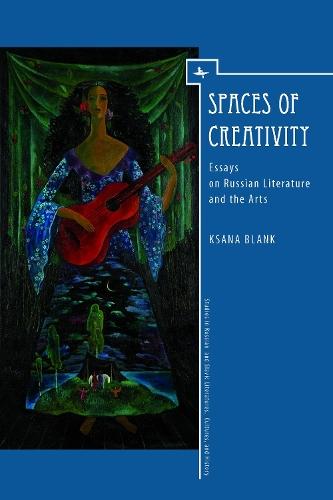Overview
In the six essays of this book, Ksana Blank examines affinities among works of nineteenth and twentieth-century Russian literature and their connections to the visual arts and music. Blank demonstrates that the borders of authorial creativity are not stable and absolute, that talented artists often transcend the classifications and paradigms established by critics. Featured in the volume are works by Alexander Pushkin, Fyodor Dostoevsky, Leo Tolstoy, Vladimir Nabokov, Daniil Kharms, Kazimir Malevich, Mstislav Dobuzhinsky, and Dmitri Shostakovich.
Full Product Details
Author: Ksana Blank
Publisher: Academic Studies Press
Imprint: Academic Studies Press
Dimensions:
Width: 15.50cm
, Height: 1.40cm
, Length: 23.40cm
Weight: 0.825kg
ISBN: 9781618115409
ISBN 10: 1618115405
Pages: 160
Publication Date: 01 December 2016
Audience:
Professional and scholarly
,
Professional & Vocational
Format: Hardback
Publisher's Status: Active
Availability: Temporarily unavailable

The supplier advises that this item is temporarily unavailable. It will be ordered for you and placed on backorder. Once it does come back in stock, we will ship it out to you.
Reviews
"""An interdisciplinary creative space is a complex thing. It is home not only to plot, language, structure, but also to whole worlds. In this provocative collection of essays, Ksana Blank shows us some unexpected corners of these worlds: the great Realist novelists shunning the railroad, Shostakovich finding poetry in Dostoevsky, the absurdist Kharms weighing in on a religious controversy, Dobuzhinsky becoming a visual chronicler of Petersburg, Tolstoy anticipating the thinking of Malevich, and Nabokov’s nymphet drowning in Pushkinian subtexts. Works we know by heart are estranged and refreshed by these resourceful angles of vision."" -- Caryl Emerson, Princeton University ""Addressing the minor themes in great writers, Ksana Blank demonstrates her talent for telling fascinating stories with surprising conclusions. She achieves the effect of theoretical estrangement: what seemed all too familiar in Pushkin, Tolstoy, Dostoevsky or Nabokov, reveals its paradoxical side. This book shows that the art of defamiliarization is no less important for literary studies than for literature itself."" -- Mikhail Epstein, Emory University As a collection of thoughtful essays on the ostensibly ‘peripheral’ themes of several major authors, Blank’s volume should hold interest for literary scholars in a number of fields, and it would also serve well as a textbook for interdisciplinary surveys of modern Russian literature. * The Russian Review * “Taken as a whole, Spaces of Creativity: Essays on Russian Literature and the Arts reflects the creative and energetic mind of its author, Ksana Blank. In six discrete essays—four of which have been published previously in earlier iterations—Blank celebrates what she calls the ‘affinities’ between classic works of the nineteenth and twentieth centuries in Russian literature, music, visual arts, and religious philosophy. In seeking these moments of productive resonance, she boldly abandons the conventional boundaries of historical periodization, just as she does the space across media and disciplines, in order to make visible the fascinating, and often quite unexpected lines of influence and confluence between her primary subjects and their works.“ —Molly Brunson, Yale University, Slavic and East European Journal"
Addressing the minor themes in great writers, Ksana Blank demonstrates her talent for telling fascinating stories with surprising conclusions. She achieves the effect of theoretical estrangement: what seemed all too familiar in Pushkin, Tolstoy, Dostoevsky or Nabokov, reveals its paradoxical side. This book shows that the art of defamiliarization is no less important for literary studies than for literature itself. --Mikhail Epstein, Emory University
Author Information
Ksana Blank is a Senior Lecturer in the Department of Slavic Languages and Literatures at Princeton University. She is the author of Dostoevsky's Dialectics and the Problem of Sin (2010).




